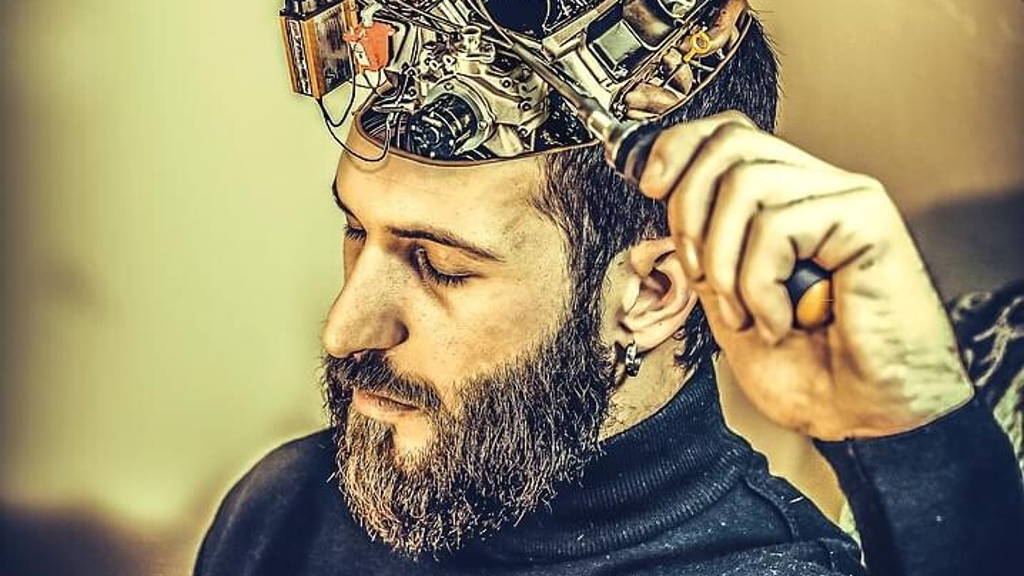The brain-computer interface venture is still in the earliest stages of existence and has no public presence whatsoever, The Verge writes. Neuralink focuses on reating devices that can be implanted in the human brain, with the eventual purpose of helping humans merge with software and keep pace with advancements in artificial intelligence.
It’s not the first startup to wander on this path. American entrepreneur Bryan Johnson (38) has his start-up Kernel working on a tiny chip that can be implanted in the brain to help people suffering from neurological damage caused by strokes, Alzheimer’s or concussions (https://www.ictandhealth.com/news/newsitem/article/neural-chip-can-help-people-fight-neurological-afflictions.html). Top neuroscientists at Kernel who are building the chip — they call it a neuroprosthetic — hope that in the longer term, it will be able to boost intelligence, memory and other cognitive tasks. It will take several years befor a prototype will be ready, says Johnson.
Johnson is part of an elite set of entrepreneurs who believe Silicon Valley can play a role in funding large-scale scientific discoveries, of the sort that can dramatically improve human life in ways that go beyond building software. In fact, many of these entrepeneurs believe they can engineer the human body in the way software is developed – bio hacking.
In medical science, electrode arrays and other implants have been used to help battle the effects of Parkinson’s, epilepsy, and other neurodegenerative diseases. But very few people have had complex implants placed inside their skulls. Even the number of patients with very basic stimulating devices number only in the tens of thousands. This is partly because it is incredibly dangerous and invasive to operate on the human brain, and only those who have exhausted every other medical option choose to undergo such surgery as a last resort, The Verge writes.
It’s not the first startup to wander on this path. American entrepreneur Bryan Johnson (38) has his start-up Kernel working on a tiny chip that can be implanted in the brain to help people suffering from neurological damage caused by strokes, Alzheimer’s or concussions (https://www.ictandhealth.com/news/newsitem/article/neural-chip-can-help-people-fight-neurological-afflictions.html). Top neuroscientists at Kernel who are building the chip — they call it a neuroprosthetic — hope that in the longer term, it will be able to boost intelligence, memory and other cognitive tasks. It will take several years befor a prototype will be ready, says Johnson.
Johnson is part of an elite set of entrepreneurs who believe Silicon Valley can play a role in funding large-scale scientific discoveries, of the sort that can dramatically improve human life in ways that go beyond building software. In fact, many of these entrepeneurs believe they can engineer the human body in the way software is developed – bio hacking.
Beliveving in bio-hacking
Now Musk seems to join the ranks of the believers in bio hacking. Recently he told people at a meeting in Dubai: “Over time I think we will probably see a closer merger of biological intelligence and digital intelligence. It's mostly about the bandwidth, the speed of the connection between your brain and the digital version of yourself, particularly output." On Twitter, Musk responded to fans about his progress on a so-called ‘neural lace’ - a brain-computer interface humans could use to improve themselves.In medical science, electrode arrays and other implants have been used to help battle the effects of Parkinson’s, epilepsy, and other neurodegenerative diseases. But very few people have had complex implants placed inside their skulls. Even the number of patients with very basic stimulating devices number only in the tens of thousands. This is partly because it is incredibly dangerous and invasive to operate on the human brain, and only those who have exhausted every other medical option choose to undergo such surgery as a last resort, The Verge writes.






